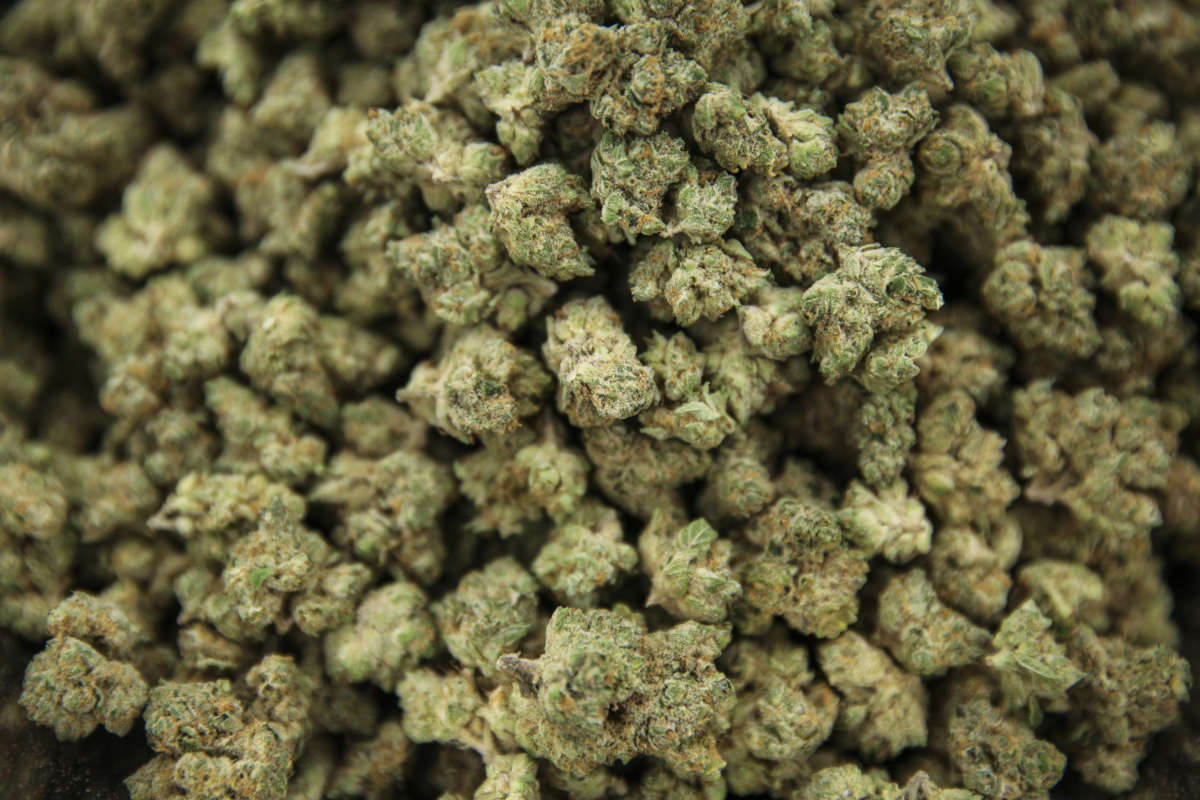The House voted along party lines on Friday to end federal prohibition of cannabis, advancing a bill that aims to address some of the damage caused by drug policing across the nation. While the bill is unlikely to pass in the Senate, the House vote is a powerful signal to President Joe Biden that elected Democrats — like much of the country — are ready to fully decriminalize marijuana at the federal level and repair some of the damage caused by the war on drugs.
The House approved the legislation, known as the Marijuana Opportunity and Reinvestment (MORE) Act, by a 220-204 vote after rejecting a bid by Republicans to send the bill back to committee. House Democrats overwhelmingly supported the bill along with only three Republicans. The House passed similar legislation in 2020 that stalled in the Senate, where Democrats must persuade at least 10 Republicans in order to avoid a filibuster and send the current bill to the president’s desk.
The legislation would allow for resentencing hearings and expungement for people convicted of certain federal marijuana crimes at a time when the people facing years in prison for cannabis are speaking out. The legislation would also tax legal marijuana sales to fund economic programs in communities damaged by the drug war and remove barriers to starting legal cannabis businesses in a booming industry currently dominated by white entrepreneurs.
If cannabis reform succeeds in the Senate, Biden would have the historic opportunity to finally end the national ban on cannabis while allowing states to set up their own regulations without running afoul of federal law. Polls show that a majority of voters have supported legalizing marijuana for years, and a poll conducted by civil rights groups last year found that 80 percent of Republicans, Democrats and independents say the war on drugs has failed.
“This vote is a clear indicator that Congress is finally listening to the vast majority of voters who are sick and tired of our failed marijuana criminalization policies and the damage they continue to inflict in communities across the nation every day,” said Morgan Fox, director of the cannabis reform group NORML, in a statement Friday.
Senate Majority Leader Chuck Schumer is reportedly expected to introduce his own marijuana legalization bill later this year that could eclipse the MORE Act. Any effort by Senate Democrats to legalize marijuana while they enjoy a slim majority in Congress — and rally voters to their side in upcoming midterm elections — would likely require compromise legislation supported by House Democrats and a handful of Republicans in the Senate.
However, House Democrats are making their priorities for cannabis legalization clear by passing the MORE Act. The legislation is championed by racial justice activists who warned lawmakers against legalizing marijuana without addressing the damage that prohibition and heavy policing has done to Black, Latino and Indigenous communities.
Black people are nearly four times more likely than white people to be arrested for marijuana despite similar rates of marijuana use, and this disparity is twice as high in multiple states. As a report attached to the MORE Act points out, Black men and Latino men receive prison sentences for drug crimes that are 13 percent and 6.5 percent longer than sentences imposed on white men, respectively.
“Now, it’s up to the Senate to finish the job — it must begin to deliver on long overdue justice to end the status quo of racist and counterproductive enforcement,” said Maritza Perez, the national affairs director at the Drug Policy Alliance, in a statement. “With more than two-thirds of Americans in favor of reform, it should be a swift and easy choice.”
Biden is coming under mounting pressure from activists and Democratic lawmakers to take executive action on cannabis regardless of what Democrats can achieve in Congress. While Biden cannot unilaterally legalize marijuana, he could order federal law enforcement to refrain from prosecuting marijuana charges and pardon thousands of people already convicted, many of them still behind bars. Biden could also appoint officials who favor decriminalization to key federal agencies and direct them to begin the process of ending federal cannabis prohibition administratively, according to the Congressional Research Service.
Eighteen states have legalized and now regulate marijuana for recreational use among adults, and many more allow cannabis as prescription medicine for a variety of conditions. However, cannabis remains illegal under federal drug law, which “schedules” cannabis as a prohibited substance with no medical value. Drugs such as MDMA and psilocybin mushrooms, which are now used to treat PTSD, depression and other conditions, are also scheduled alongside marijuana and remain illegal on the federal level despite a growing body of research that points to their medical benefits.
We have 10 days to raise $50,000 — we’re counting on your support!
For those who care about justice, liberation and even the very survival of our species, we must remember our power to take action.
We won’t pretend it’s the only thing you can or should do, but one small step is to pitch in to support Truthout — as one of the last remaining truly independent, nonprofit, reader-funded news platforms, your gift will help keep the facts flowing freely.
